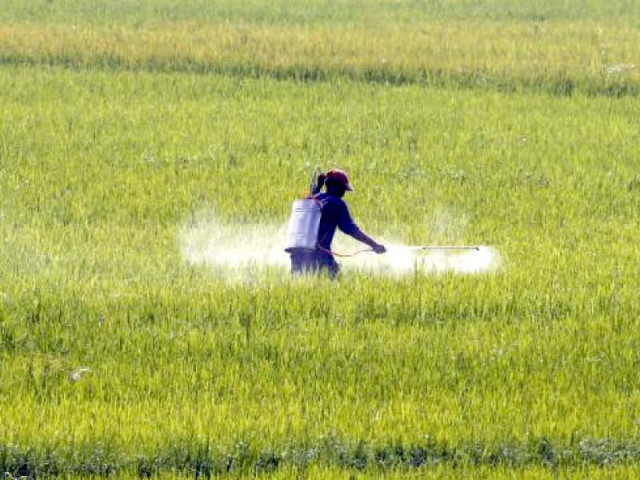Pakistan, China join hands for new wheat varieties
Researchers will develop different seed varieties to cope with harsh conditions

Pakistani and Chinese researchers have collaborated to enhance food security of Pakistan and develop different varieties of seeds to withstand harsh conditions.
“We are trying to cross the high-yielding and drought-resistant Chinese wheat germplasm with our local ones,” said Bahauddin Zakariya University Professor Habibur Rehman Athar while speaking to the China Economic Net.
“Once accomplished, they are expected to reduce the cost by 13% and increase farmers’ return by 25-27%.”
He is working with researchers of the Northwest A&F University, China at the Sino-Pak Biohealth Agriculture Demonstration Park.
Hopefully within the next three to four years, Pakistan will have clear-cut results of the inclusion of Chinese officials in the field of food security.
During the past three years, the two sides have been publishing papers jointly, exchanging scientific visits and submitting research projects.
“Our group for wheat research consists of 34 students including undergraduates, masters, and doctoral candidates,” said Athar.
The team envisages identification of stress-tolerant wheat cultivars by screening and selecting the local germplasm as well as exotic ones. Among Chinese germplasm, five lines are found to have good performance in terms of yield and tolerance.
Wheat cultivar S24 has been verified by the foreign research institutes, including the International Maize and Wheat Improvement Centre (CIMMYT), as a high-yielding and salt stress-tolerant variety.
In the next step, the group will cross it with other cultivars that are rust-resistant and have a moderate height.
The group is also working to apply Chinese nano fertilisers and nano biochar to Pakistani wheat varieties.
Wheat is Pakistan’s number one food crop. “During the last 10 years, around 15 lines have been rolled out, but since we now have Chinese germplasm, we can improve them,” he said.
“We aim to increase the yield by 2.7% and enhance the physiological performance by 27%.”
Through the Sino-Pak Biohealth Agriculture Demonstration Park, farmers can look at the experimentation and actual cultivars.
“It will not only increase the productivity on farm fields but will also contribute to the food security of Pakistan,” said Athar.
THE ARTICLE ORIGINALLY APPEARED ON THE CHINA ECONOMIC NET
Published in The Express Tribune, December 23rd, 2021.
Like Business on Facebook, follow @TribuneBiz on Twitter to stay informed and join in the conversation.



















COMMENTS
Comments are moderated and generally will be posted if they are on-topic and not abusive.
For more information, please see our Comments FAQ